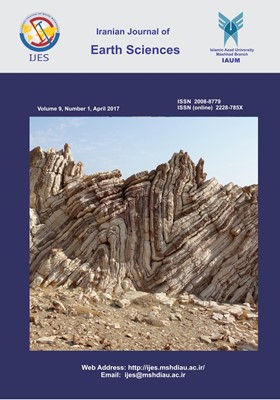The Microbiostratigraphy and Depositional History of the Turonian–Santonian Surgah Formation at the Northern Flank of the Kuh-e Sepid Anticline, Lorestan Basin
محورهای موضوعی : Mineralogy
1 - Department of Geology, Faculty of Sciences, Lurestan University, Khorram Abad, Iran
کلید واژه: Biostratigraphy, planktonic foraminifera, Turonian, Santonian, Lorestan Basin,
چکیده مقاله :
In this research, the microbiostratigraphy and depositional environmental implications related to the Surgah Formation at the northern flank of the Kuh-e Sepid anticline in the Lorestan Basin are discussed. A study of small planktonic foraminifera from the 101-m-thick Surgah Formation led to the identification of three Turonian–Santonian biozones: (1) Helvetoglobotruncana helvitica, (2) Marginotruncana sigali, and (3) Dicarinella concavata. The age of the Surgah Formation in the study area is determined as Turonian–Santonian. The Surgah Formation overlies the Sarvak Formation and underlies the Ilam Formation in the studied stratigraphic section. Based on an analysis of pelagic foraminiferal assemblages and microfacies features, seven different microfacies have been recognized. These can be grouped into three depositional environments: the inner, middle, and outer ramps.
In this research, the microbiostratigraphy and depositional environmental implications related to the Surgah Formation at the northern flank of the Kuh-e Sepid anticline in the Lorestan Basin are discussed. A study of small planktonic foraminifera from the 101-m-thick Surgah Formation led to the identification of three Turonian–Santonian biozones: (1) Helvetoglobotruncana helvitica, (2) Marginotruncana sigali, and (3) Dicarinella concavata. The age of the Surgah Formation in the study area is determined as Turonian–Santonian. The Surgah Formation overlies the Sarvak Formation and underlies the Ilam Formation in the studied stratigraphic section. Based on an analysis of pelagic foraminiferal assemblages and microfacies features, seven different microfacies have been recognized. These can be grouped into three depositional environments: the inner, middle, and outer ramps.


